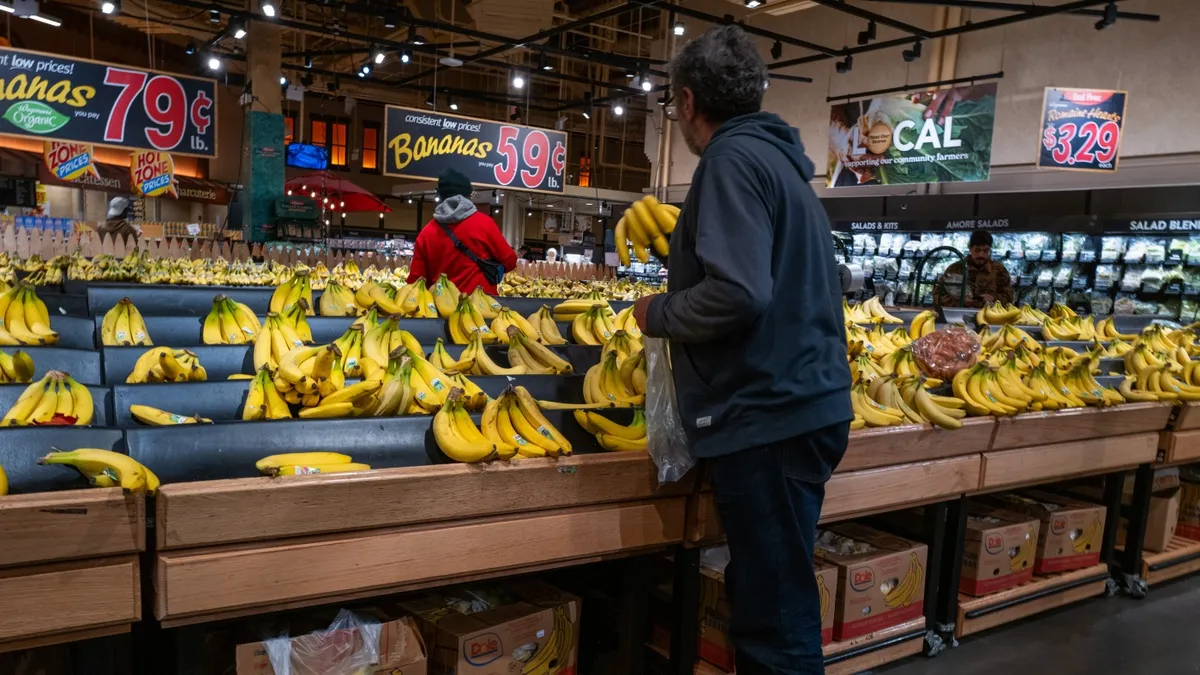
A coalition of 21 states and Washington, D.C. has initiated a lawsuit against the U.S. Department of Agriculture (USDA). This legal action comes in response to the USDA's recent directive requiring states to submit extensive personal information of applicants for food assistance, specifically those enrolled in the Supplemental Nutrition Assistance Program (SNAP). The USDA has mandated that states provide this sensitive data by July 30, covering a five-year period, which includes names, Social Security numbers, birth dates, and addresses of applicants and their household members.
In a troubling development, the USDA expanded its data collection requirements last week to encompass even more personal information, including immigration status and details about household members. The agency has warned that states failing to comply with these data requests might face financial repercussions, including the potential loss of federal funds.
The lawsuit, spearheaded by Democratic attorneys general from California and New York, contends that the USDA has not adhered to established protocols outlined in various federal privacy laws. The states are seeking a judicial order to prevent the USDA from enforcing its data demands or penalizing states that refuse to comply.
California Attorney General Rob Bonta emphasized the gravity of the situation during a press conference, stating that SNAP recipients provided their information solely to receive assistance for feeding their families, not to be included in a governmental surveillance database or to be targeted by the administration's immigration policies.
The legal dispute surrounding SNAP data collection arises amid concerns that the Trump administration is leveraging government data for purposes including immigration enforcement. Recent actions have been taken to share IRS and Medicaid data with immigration officials to facilitate the identification of individuals at risk of deportation. The lawsuit characterizes the USDA's request for SNAP data as another facet of an "Orwellian surveillance campaign."
Notably, a coalition of states has previously filed a lawsuit aiming to halt the administration from disseminating Medicaid data. Although individuals without legal status are ineligible for SNAP benefits, U.S. citizen children can still qualify for assistance, irrespective of their parents' immigration status.
Attorney General Bonta challenged the USDA's justification for centralizing data on SNAP applicants, asserting that existing anti-fraud measures and established auditing processes already adequately protect program integrity without necessitating the collection of personally identifiable information. He argued that the USDA's actions are not aimed at oversight or transparency but are designed to create a culture of widespread surveillance under the pretext of combating fraud. "This is an illegal data grab designed to deter individuals from accessing public assistance programs," he stated.
The lawsuit claims that the USDA's data collection initiative is not only unconstitutional but also violates federal privacy laws and exceeds the agency's designated authority. The complaint names the USDA and its Secretary Brooke Rollins as defendants, along with the USDA's Office of Inspector General, which has also been requesting sensitive data from certain states.
While the USDA has refrained from commenting on ongoing litigation, a spokesperson for the U.S. Department of Justice did not provide a response to inquiries regarding the lawsuit.
This lawsuit marks the second legal challenge against the USDA's data collection strategy. Previously, a group comprising SNAP recipients, an anti-hunger organization, and a privacy advocacy group filed a suit shortly after the USDA announced its data plans in May. That case is still active, with a federal judge recently denying a request from plaintiffs to delay the USDA's data collection deadline.
Currently, over 40 million individuals receive SNAP benefits each month throughout the United States. Traditionally, states have gathered detailed information from applicants to assess their eligibility for food assistance, with that data remaining within state jurisdictions until now. The USDA has cited one of President Trump's executive orders, which calls for unrestricted access to state program data funded by the federal government to combat waste, fraud, and abuse.
Michigan Attorney General Dana Nessel highlighted the specific details that SNAP applicants must provide, including landlord contact information and expenses related to utilities and medical debt. She emphasized the responsibility of the government at all levels to manage personal identifying information with care.
In its public notice regarding the data collection initiative, the USDA claimed it could share the collected data with law enforcement and other agencies, including foreign governments, if there were potential violations, even if unrelated to SNAP. A group of 14 states expressed objections to the USDA's public notice, arguing that the proposed broad use of SNAP data contradicts the intended purpose of the program.
Despite significant public opposition, the USDA moved forward with its data collection plans, commencing on July 24, the day following the closure of the public comment period. While some states have indicated they might comply with the USDA's request, the level of adherence remains uncertain as the July 30 deadline approaches. For instance, Texas's SNAP agency requested additional clarity on the data collection process and stated that it would require eight to ten weeks to submit data after receiving necessary answers. California, according to the lawsuit, would take over three months to compile and submit the requested data.
Ultimately, the lawsuit argues that the USDA's data demands could discourage individuals from utilizing SNAP benefits. Attorney General Nessel noted that there have been anecdotal reports of mixed-status families in Michigan avoiding food pantries or refraining from using SNAP benefits out of fear of immigration enforcement. "Parents are too afraid to seek food assistance for their children, which is profoundly cruel," Nessel stated.